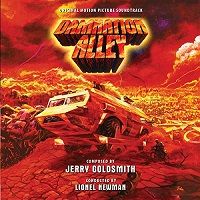Neil Younger | Homegrown
In a day and time where exhuming stacks of demos and alternate mixes is among the most norm for therefore many older works, Neil Youthful ’s Homegrown – a scrapped studio album from 1975 – will be something of magic, one of the uncommon archival releases that provides something substantial also for the most informal of fans. He’s got known as Homegrown “the missing hyperlink between Harvest, Shows up a Time, Old Methods, and Harvest Moon ,” and even, its soft, rootsy audio aligns it with those country-tinged initiatives, but digging under the surface, one furthermore senses a resonance with the so-known as “Ditch Trilogy,” the trio of darkish, dour records which straight preceded Homegrown ’s creating and recording. Considering that Young’s ’70s work was among the strongest in well-known music history, it’s impressive how well Homegrown stands up alongside its chronological peers.
Young’s known reasons for shelving the album appear to stem mainly from the pain connected with its creation, to arrive the wake of a hard breakup with celebrity Carrie Snodgress: “I simply couldn’t pay attention to it,” he wrote in a recently available post, “I needed to go on.” For Young, 45 years roughly appears to have healed those wounds, however the heartache fueling these music still bears a good uneasy immediacy. “Like Is really a Rose” (among five Homegrown tracks that have already seen some type of release) provides a essential sentiment: “ Like is really a rose, but you do not pick out it .” Apart from several drug-indebted jaunts (the goofy name monitor, the blues jam “We Don’t Smoke It FORGET ABOUT,” and the surreal spoken-word monitor “Florida”), the tunes on Homegrown have a tendency to focus on the dissolution of the connection and the thorny emotions that include it. These range between bitterness (“Love Is really a Rose,” “Vacancy,” “Superstar of Bethlehem”) to a far more wistful quasi-acceptance. Opener “Individual Ways,” the very clear standout, drops in the latter class: “ Me for me personally, you for you personally / Happiness is in no way through ,” he sings, backed by way of a groovy Levon Helm defeat and Tim Drummond’s melodic bass guitar. “ It’s just a change of methods / Which is nothing new .” But he doesn’t audio quite convinced.




Recent Comments